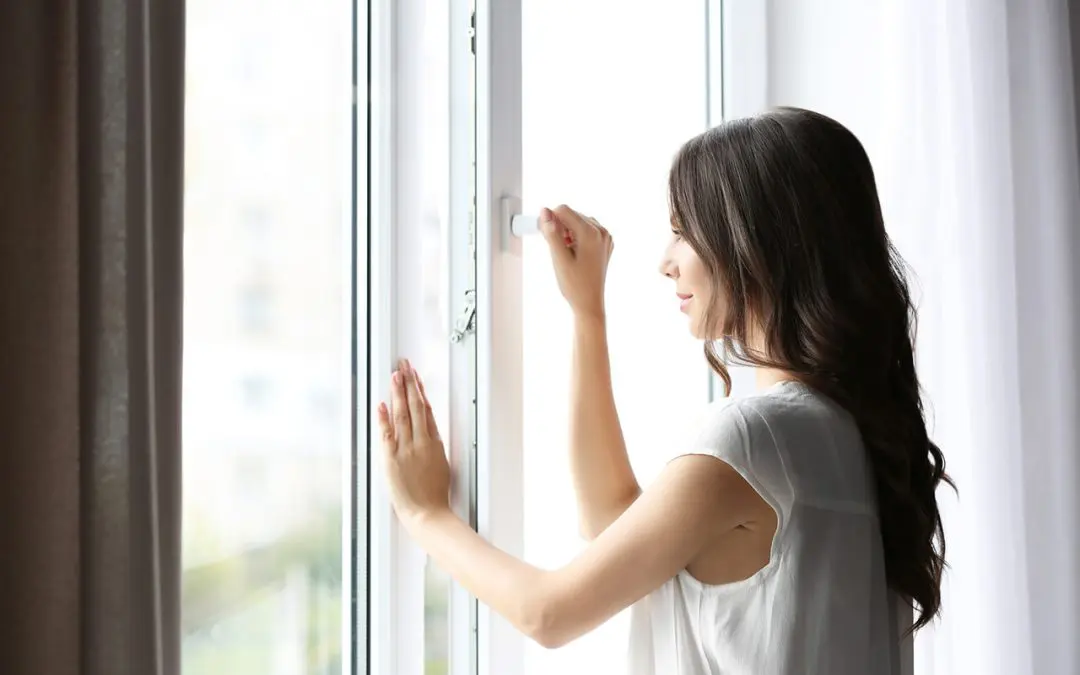Energy-efficient windows do more than look good—they’re designed to improve comfort, lower energy bills, and add value to your home. If your current windows are drafty, outdated, or underperforming, upgrading to energy-efficient models is a smart move. Here’s what sets them apart and why they’re worth considering.
How Energy-Efficient Windows Work
These windows are designed to limit heat transfer, keeping warm air inside during winter and blocking heat out in summer. Key features include double- or triple-pane glass, low-emissivity (Low-E) coatings, gas fills like argon between panes, and insulated frames. Each component helps reduce energy loss and improves thermal performance.
Low-E coatings reflect infrared light, which helps regulate indoor temperatures more effectively. Gas fills improve insulation without adding bulk, and materials like vinyl, fiberglass, or wood composites help minimize heat transfer through the frame itself. All of this reduces the load on your heating and cooling systems.
The Benefits You’ll Notice
Energy-efficient windows lead to more consistent indoor temperatures and fewer drafts. Your HVAC system won’t have to work as hard, which typically results in lower energy bills. These windows also reduce UV exposure, which helps protect furniture, flooring, and fabrics from fading.
There’s also a noticeable improvement in noise reduction. The added insulation and multiple panes block out more outside sound. Many energy-efficient windows come with modern locks and design upgrades, adding to your home’s security and curb appeal.
Signs It’s Time to Upgrade
If you feel cold spots near your windows, see condensation between panes, or notice your energy bills creeping up, your current windows might not be doing their job. Older single-pane windows offer very little insulation, and older double-pane models fall short compared to today’s standards.
Hard-to-open frames, rotting wood, or outdated aesthetics are also signs it might be time for a change. Replacing windows improves performance and gives your home a fresh look and better function.
What to Look for When Buying
Start with the ENERGY STAR® label to ensure the windows meet federal energy-efficiency standards. Then, look at the U-factor and Solar Heat Gain Coefficient (SHGC) on the NFRC label. A lower U-factor means better insulation, and a lower SHGC is better for hot climates where solar heat is a concern.
Also, make sure experienced professionals handle installation. Even the best windows won’t perform well if they’re poorly installed. Gaps, poor sealing, and misalignments will undo all the energy-saving benefits.
If you plan to stay in your home long-term, energy-efficient windows will continue to pay dividends in terms of comfort, lower maintenance, and improved durability. From a financial and lifestyle perspective, it’s a smart improvement.
FAQs About Energy-Efficient Windows
How long do energy-efficient windows last?
Most high-quality energy-efficient windows last 20 to 40 years. Longevity depends on the materials, climate, and installation quality. Regular maintenance helps extend their lifespan.
Do energy-efficient windows qualify for tax credits or rebates?
Many federal, state, and local programs offer incentives for installing energy-efficient windows. The ENERGY STAR® website is a good place to start for current information on tax credits and rebates in your area.
Are triple-pane windows worth it?
Triple-pane windows offer better insulation and noise reduction than double-pane windows, especially in extreme climates. They cost more upfront but can be worth the investment if you’re focused on maximum efficiency and comfort.
Can I just add film or insulation to my old windows instead?
Temporary solutions like window film or weather stripping help a little, but they won’t match the performance or long-term savings of true energy-efficient replacement windows.
Is it better to replace all windows at once or in phases?
Replacing all your windows simultaneously gives you the most consistent performance and aesthetics, but it can be done in phases if needed. Start with the most problematic or inefficient windows and plan from there.
HomeSpec offers home inspections in North Mississippi and Southwest Tennessee. If you’re buying or selling a home, contact us to request an appointment.

